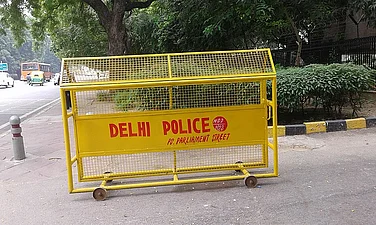How do you view the decision to not hold elections in J&K at this point?
It's one of the few wise things India has done. It would have been troublesome for not only the Government but also the political parties. Besides, the BJP might have taken undue advantage of the situation.
Are you opposed to elections per se?
We are not against any meaningful democratic exercise. We will definitely take part in any elections provided they are: (a) held to decide the state's future; (b) held under international supervision; and (c) held in the entire state, including Pakistan-controlled areas of Azad Kashmir, Gilgit and Baltistan, after the withdrawal of Pakistani and Indian armed forces from the state.
India has always said a plebiscite is not possible because Pakistan has not vacated the territory it controls.
The question of who vacates first will arise only when India accepts that Kashmir is disputed territory and is willing to withdraw from it once Pakistan does so.
What exactly do you mean by a "meaningful democratic exercise"?
A process aimed at settling the issue permanently and peacefully. I have three proposals: Give independence to the entire state or place it under UN supervision for 10 years, after which Kashmiris can decide in a referendum whether to remain an independent state or to join India or Pakistan; let Kashmiri notables—representatives of all regions, religions and factions—meet at a neutral venue, evolve a formula and put it before India, Pakistan and the global community for implementation; let there be talks between the representatives of India, Pakistan and the Kashmiris to evolve a solution.
We in the JKLF are not the enemy of the state or people of India. Our animosity is with the machinery that keeps our homeland under forced occupation, both in Indian and Pakistan controlled areas. We disagree with Pakistan's policy as it limits our right to accede to either side and disregards our right to opt for independence.
How do you react to your "expulsion" from the JKLF by Yasin Malik, who claims to be the head now?
My action of replacing Malik was in full accordance with the JKLF constitution whereas his action is completely unconstitutional and immoral. I continue to be chairman and we do exist in J&K. Shabbir Siddiqui heads our political wing and Basharat Raza our military wing. Malik is
no longer ours, he became India's by agreeing to a ceasefire. Now he is no longer India's, because when he joined the All Party Hurriyat Conference (APHC) it was immediately recognised by Pakistan which is trying to own him and the APHC. Tomorrow he may not even be Pakistan's—all he is interested in is the JKLF chairmanship and, maybe, chief ministership. He has a presence in Srinagar alone. We, the real JKLF, are in the rural areas as well. And we control Hazratbal, and there is a saying that whoever controls Hazratbal controls Kashmir.
How do you view the APHC'S role?
Unfortunately, our movement has no single undisputed leader or party and the need for collective leadership is unavoidable. But some of the APHC'S recent actions don't sit well with those entrusted with such a task. They don't have full control over militancy and are prone to making hasty decisions. They have excluded important leaders like A.G. Lone who have better control.
What is Pakistan's role in J&K?
Pakistan is not doing as much as it should. It's within its right to support the struggle militarily—it's a party to the issue. The UN resolution No. 2621 empowers every interested party to adopt all necessary means, including armed struggle, for liberation.
But the UN has redefined "self-determination". Only those whose rights are suppressed can demand it. India has always said that it wants to restore the democratic process in J&K.
Under the new definition, for example, a man from Bombay cannot demand the right to self-determination. But Kashmir has been an international issue ever since India conceded its right to self-determination. Today you say it is an integral part of India, but right up to 1957 representatives of the Indian Government pledged that Kashmiris had the right to secede. Nowhere was it claimed that Kashmir was India's.
It's said that you have been reduced to a non-entity on both sides. Do you still think that you matter?
The very fact that I exist politically today is a miracle. India has exerted a lot of energy to kill me politically and physically. I'm not on good terms with the Jamaat who wants me eliminated and the Pakistan Government too is after me. There are always ups and downs in freedom movements. In 1990 too, most of my senior colleagues were won over and made to revolt against me—most of them don't exist politically today. In 1982, a revolt was engineered by vested interests in the UK, but I survived. It won't be long before I regain my deserved place.






















